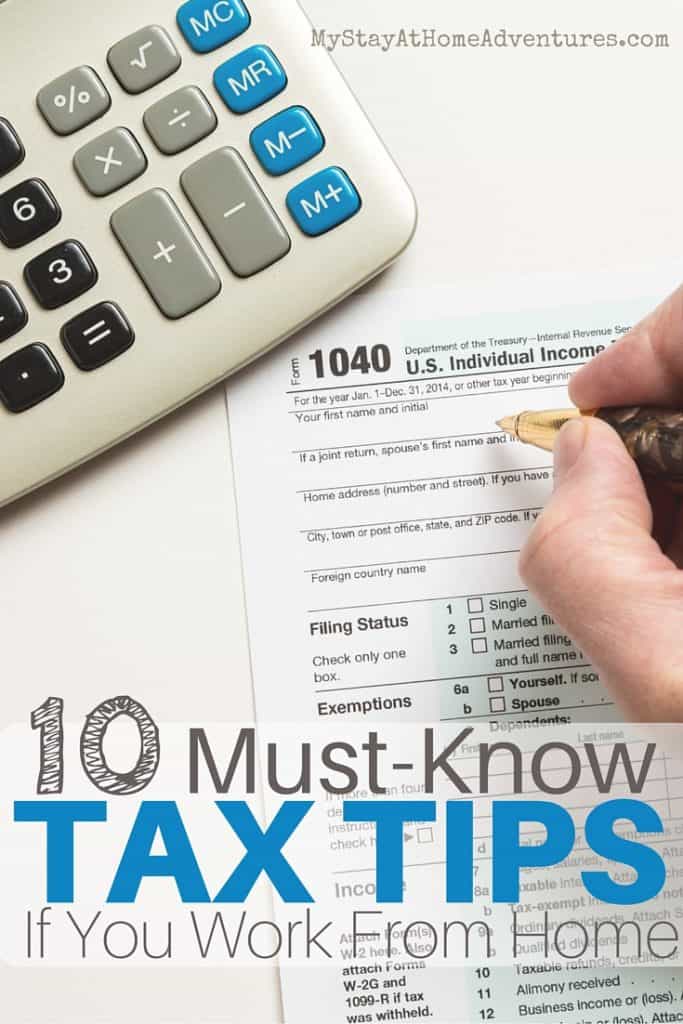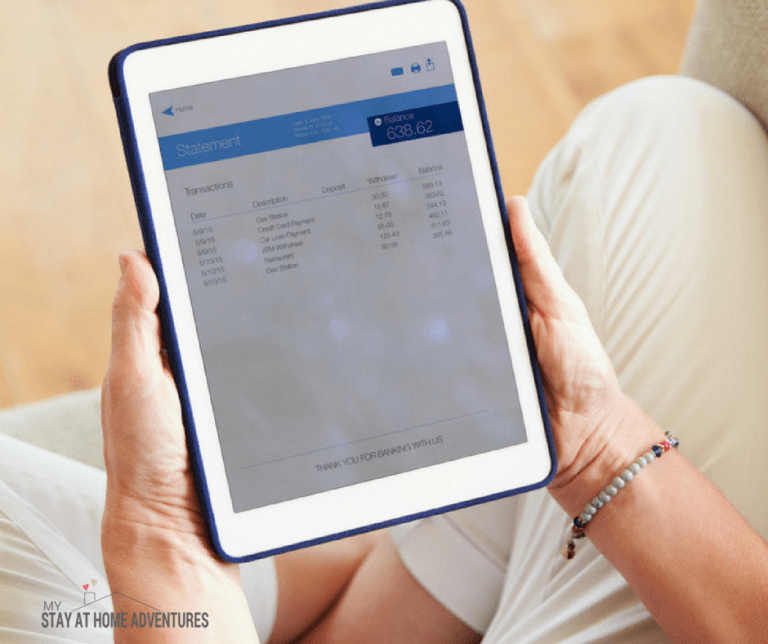10 Must-Know Tax Tips If You Work From Home
This post may contain affiliate links which might earn us money. Please read my Disclosure and Privacy policies hereWorking from home can be really attractive to parents. You have the flexibility to volunteer at your kids’ school and deal with snow days, and your life can be a whole lot less hectic if you can get rid of that commute to the office.
Still, the one time of year that can be scary for work-at-home parents is tax season. If you run your own business or freelance from home, there’s a lot to think about when filing your income tax return with the IRS. Check out these top 10 tips to make your accounting a little easier this April.
 10 Must-Know Tax Tips If You Work From Home
10 Must-Know Tax Tips If You Work From Home
-
Start Early
If you’ve never filed business taxes before, there’s definitely a learning curve. This is not the time to wait until April 14 to get started. Start a folder for all those W2s or 1099s coming in the mail right now, and set a goal to sit down and get started by mid-February so you have plenty of time to study up on all the rules and deductions.
-
Get Organized
Speaking of that folder for W2s or 1099s, hopefully you already have a few file folders going for expense receipts, invoices and other accounting paperwork you’ll need to file your taxes. If you don’t, give yourself a day to root around your desk and find everything. If you feel like something is missing, you can probably find it online. Most banks have their tax forms available online as a PDF you can download, making it much easier to have a copy of everything you need.
-
Hang on to Your Records
You may want to purge your files of all those little bits of papers. Little receipts can be annoying, but you need to hang on to them, especially if you’re planning to claim deductions for business expenses. Keep your records for seven to 10 years — if you ever get audited by the IRS, you’ll be glad you did.
-
Make the Most of Your Deductions
You can deduct many business expenses, especially if you run an office from your home. Most of the office supplies and equipment you purchase for business use are fully deductible, including everything from paperclips to a new photocopier. You can also deduct business travel expenses and marketing costs, so make sure you don’t miss any money-saving deductions.
-
Donate to Charity
Just like in your personal income tax return, charitable donations are also deductible from your business. If you don’t yet give to charity as a business, research a cause you love and get started for next year. You’ll boost your bottom line and help your local community in the process.
-
Know Your Filing Status
Double-check your filing status with the IRS to make sure the appropriate amount of tax is withheld from any paychecks you get during the course of the year if you get W2s. If you overpay during the year, you’re essentially missing out on the chance to put that money to work for you. If you underpay, you could be hit with penalties.
-
Plan for Next Year
In addition to making sure you aren’t under- or over-paying your taxes during the year, tax season is the perfect time to review your business’s financial plan. You might even consider incorporating or becoming an LLC, which could result in tax benefits in the long run.
Check out these money posts:
- 154 Resources to Make Money On The Side In 2018 That Do Work!
- 5 Smart Ways To Stretch Your Tax Refund
-
Choose the Right Tax Software
If you’re planning to do your taxes yourself, make sure you’re using software or an online program that specifically addresses the needs of small businesses and freelancers. Many programs are free for only the most basic 1040EZ filing, so it’s worth paying for the upgrade to make sure you’re getting the proper advice and forms.
-
Work With a Professional
Feeling overwhelmed by all the paperwork and complex instructions from the IRS? You don’t have to go it alone! Hire an accountant or professional tax preparation service to help you with your tax return — you get to deduct the cost of professional tax preparation from next year’s taxes, so it’s a good investment for your business to make sure it’s done right.
-
Be Honest
Whether you choose to do your taxes yourself or pass that box of receipts and loose papers off to an accountant, it’s important to remember honesty is the best policy. If you have a legitimate deduction, take it. If you’re not sure — or if you don’t have the paperwork to back it up — don’t try to skirt the law. It’s a sure-fire way to get audited in the future, and the penalties aren’t worth it.
Taxes are a big deal, and the first time you file for your home business can feel pretty overwhelming. Take your time and follow these tips, and you’ll be well on your way to fiscal success — on April 17, 2018 and beyond.
Anum Yoon is a personal finance writer who is dedicated to sharing her insights on money management with others. She believes that a greener, energy-efficient lifestyle is the key to living a more fulfilling life. When she’s not typing away on her keyboard, you can find her poring over a new recipe she found on Pinterest or at the power rack in her gym. Catch her on Twitter or sign up for her newsletter here to find out what she’s sharing!







Taxes are definitely the biggest headache of every freelancer or home based worker. I love the in depth guidelines you provided, especially the one about getting organized and planning on annual basis, really helpful!